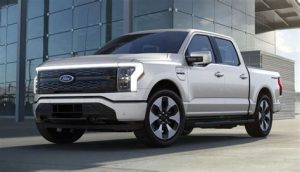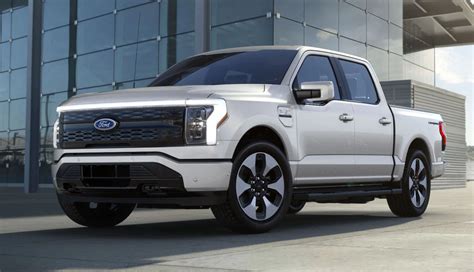
As we reported here, the Biden administration’s new emission plans are bonkers. They will make cars more expensive for Americans, curb U.S. energy jobs, and make Chinese battery manufacturers richer.
The new proposed regulations from the Environmental Protection Agency would require new car sales to be 60% battery-powered electric by 2030 and 67% by 2032 in order for automakers to be in compliance with the new regulations, compared with fewer than 6% in 2022.
Electric vehicles are more dangerous, more expensive, and can take 45 minutes to recharge. Mandating a tenfold increase in sales of electric vehicles would take away Americans’ choice of vehicles and force them into unsafe ones.
Electric vehicles are not affordable for many Americans. The electric version of the Ford F-150 pickup truck, the bestselling vehicle in America, costs an additional $10,000. Those vehicles are not practical for Americans who live in cold states or who have to drive long distances.
In addition, EVs are not emissions-free, because they require components, such as batteries, that are made using fossil fuels. In addition, increased electricity demand places additional stress on the electrical grid, as California has discovered the hard way from rolling blackouts.
America has vast resources of oil and natural gas and is energy independent. The EPA’s proposed rules would make China stronger and America weaker because China makes most of the world’s batteries.
China is a totalitarian regime that uses forced labor and coal-fired power plants to make the batteries. America should not be dependent on China for a vital element of transportation.
This mandate of a tenfold increase in sales of electric vehicles would affect Americans and manufacturers with negligible results for the climate because China has not committed to reducing emissions until 2027.
In fact, China continues to build coal-fired power plants. Consider that America has 225 coal-fired power plants and China has 1,118 (half of all the coal-fired plants in the world).
China has increased carbon emissions by more than 5,000 million metric tons over the past 16 years. In contrast, America’s carbon emissions have declined by more than 1,000 million metric tons over the same period due to the use of clean natural gas.
Mining for minerals that go into batteries is energy-intensive, and the Chinese Communist Party has facilitated access to domestic and foreign minerals for battery production. Minerals such as lithium and cobalt are essential for batteries and Contemporary Amperex Technology Co. Ltd., the Chinese battery manufacturer, has a ready supply. It gets lithium from its operations in western China’s Qinghai province, subsidized by government funding.
China purchases cobalt for electric batteries from Kisanfu, in Congo, where it purchased 25% of cobalt reserves in 2022. The cobalt in Congo is produced with child labor, according to the testimony of Father Rigobert Minani Bihuzo, regional coordinator of the Ecclesial Network for the Congo Basin Forest, who testified at a human rights hearing organized by Rep. Chris Smith, R-N.J., on July 14.
Beijing is engaged in genocide against the minority Uyghur people of Xinjiang and has imposed draconian restrictions on political freedoms in Hong Kong. The CCP has cracked down on religious liberties for Christians and for Buddhist worshipers of the Dalai Lama throughout Tibet.
Empowering the Chinese government is fundamentally at odds with good corporate governance.
The Biden administration’s plans to impose unprecedented new emissions limits would not only cost the American economy quite likely trillions of dollars over the life of the regulation, but also destroy American jobs in the automotive and energy industries while lining the pockets of Chinese battery manufacturers.
New regulations are designed to force the mass conversion to electric vehicles by requiring 67% of all new cars sold to be electric by 2032—regardless of the cost. In an economy where used-car prices and gas prices have both skyrocketed, this new push for electric vehicles will only make vehicles less affordable while killing thousands of jobs.
The Heritage Foundation’s report “Winning the Cold War: A Plan for Countering China,” published last month, shows how America’s environmental policies make China stronger and America weaker.
In order to win this new Cold War, America needs to abandon policies that promote dependence on China and return to energy independence. The Biden administration EV proposal would do just the opposite.
In contrast, the House of Representatives’ Lower Energy Costs Act, HR 1, emphasizes domestic energy production and would lower energy costs and reduce emissions.
New EPA regulations, driven more by politics and virtue signaling than economics and emissions reductions, will only enrich China at America’s expense and place vital energy supply chains at the mercy of Beijing.
The regulations would raise vehicle costs for Americans, give up energy independence to China, and yet have no environmental benefits. The Biden administration should withdraw its proposal.
Diana Furchtgott-Roth is the director of the Center for Energy, Climate and Environment and the Herbert and Joyce Morgan Fellow at The Heritage Foundation. Reproduced with permission. Original here.

